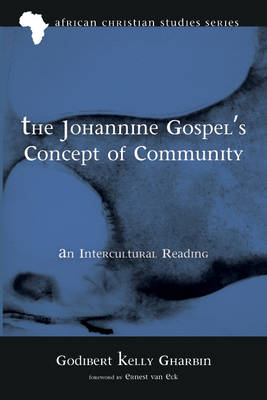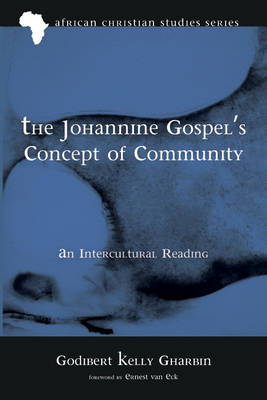
Bedankt voor het vertrouwen het afgelopen jaar! Om jou te bedanken bieden we GRATIS verzending (in België) aan op alles gedurende de hele maand januari.
- Afhalen na 1 uur in een winkel met voorraad
- In januari gratis thuislevering in België
- Ruim aanbod met 7 miljoen producten
Bedankt voor het vertrouwen het afgelopen jaar! Om jou te bedanken bieden we GRATIS verzending (in België) aan op alles gedurende de hele maand januari.
- Afhalen na 1 uur in een winkel met voorraad
- In januari gratis thuislevering in België
- Ruim aanbod met 7 miljoen producten
€ 48,95
+ 97 punten
Uitvoering
Omschrijving
The Johannine Gospel's Concept of Community takes an interdisciplinary approach to contextualizing the New Testament in an African milieu, which helps Johannine scholarship intersect with Akan anthropology and sociology through a tripartite frame of interpretation--a narratological analysis of community-oriented narratives in John, the exegesis of the Akan concept of community encapsulated in their proverbial lore (the anthology of inestimable information about the Akan conceptualization of communitarianism), and an engagement between the two conceptual schemes through an intercultural reading. The methodological principles utilized foster a cross-pollination of ideas between the Johannine characterization of a community of God and the community concept present in Akan maxims. This allows the Akan concept of communitarianism to enrich the reader's understanding of the text. It also allows John's theology of community--revealed in what Jesus epitomizes, prescribes, and proscribes for the believing community--to serve as a form of discernible evaluation for Akan (and other) believers on the modus vivendi redolent of a believing community. In the end, it forces a redefinition of community, replacing the anthropocentric, individualistic, and acquisitive elements that have typified the human community with a theocentric and authentically collectivist approach.
Specificaties
Betrokkenen
- Auteur(s):
- Uitgeverij:
Inhoud
- Aantal bladzijden:
- 270
- Taal:
- Engels
- Reeks:
Eigenschappen
- Productcode (EAN):
- 9798385220083
- Verschijningsdatum:
- 27/05/2025
- Uitvoering:
- Paperback
- Formaat:
- Trade paperback (VS)
- Afmetingen:
- 152 mm x 229 mm
- Gewicht:
- 367 g

Alleen bij Standaard Boekhandel
+ 97 punten op je klantenkaart van Standaard Boekhandel
Beoordelingen
We publiceren alleen reviews die voldoen aan de voorwaarden voor reviews. Bekijk onze voorwaarden voor reviews.









